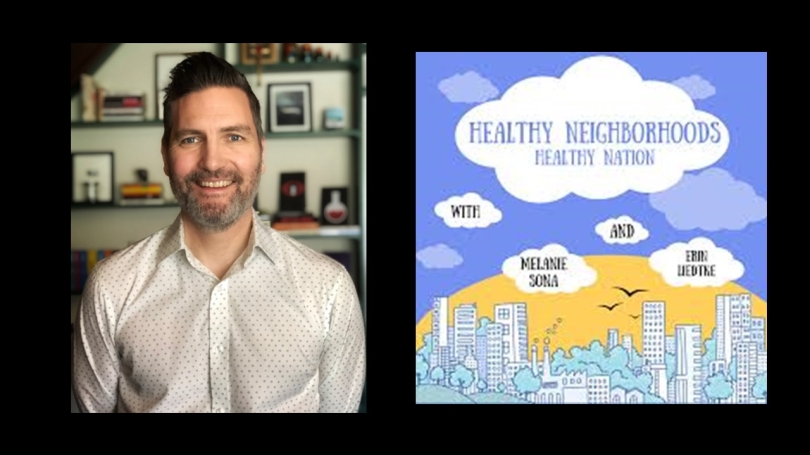
- Undergraduate
- Exchange Program
- Research
- Equity
- News & Events
- People
- Contact us
Back to Top Nav
Back to Top Nav
Back to Top Nav
Erin Liedtke and Melanie Sona are research fellows at the National Institutes of Health on a journey to explore how the structural components of neighborhoods impact health. There is a growing awareness that zip code is more important than genetic code and we explore why by having in-depth discussions with public health experts and community leaders about the environmental determinants of health. Join us as we learn about how to make our nation healthier one neighborhood at a time.
Prof Greg Sharp joined Erin and Melanie in a recent podcast "Healthy Neighborhoods, Healthy Nation"
Spotify: https://open.spotify.com/show/6QolcZJztHSx9qJ3k9QqOD
Apple: https://podcasts.apple.com/us/podcast/healthy-neighborhoods-healthy-nation/id1690036030
Community Connections: The Sociology of Neighborhoods With Gregory Sharp Healthy Neighborhoods, Healthy Nation
In our upcoming episode, we have the pleasure of hosting Gregory Sharp, a renowned sociologist from Dartmouth College. Join us as we delve into the fascinating realm of sociology and its critical role in understanding neighborhoods and their impact on health.
In this insightful conversation, we explore the concept of social capital and how it influences the well-being of communities. Gregory will share his expertise on how social networks, relationships, and community connections contribute to building social capital within neighborhoods, and how this can positively influence the health outcomes of residents.
We also delve into the concept of social cohesion and its significance in creating cohesive and resilient neighborhoods. Gregory will shed light on the importance of trust, shared values, and mutual support among community members, and how these factors can contribute to improved health and well-being.
Additionally, we explore the protective factors of neighborhood organization on health. Gregory will discuss the role of community organizations, associations, and grassroots initiatives in fostering healthier neighborhoods. We delve into the ways in which organized communities can advocate for improved healthcare services, access to resources, and a supportive environment for residents.
Tune in to this thought-provoking episode as we unravel the profound insights of Gregory Sharp on the intersections of sociology, neighborhoods, and health research. Gain a deeper understanding of the power of social capital, social cohesion, and neighborhood organization in shaping the health outcomes of individuals and communities. Don't miss out on this enlightening conversation that promises to broaden your perspective on the vital role of sociology in creating healthier and more resilient neighborhoods.